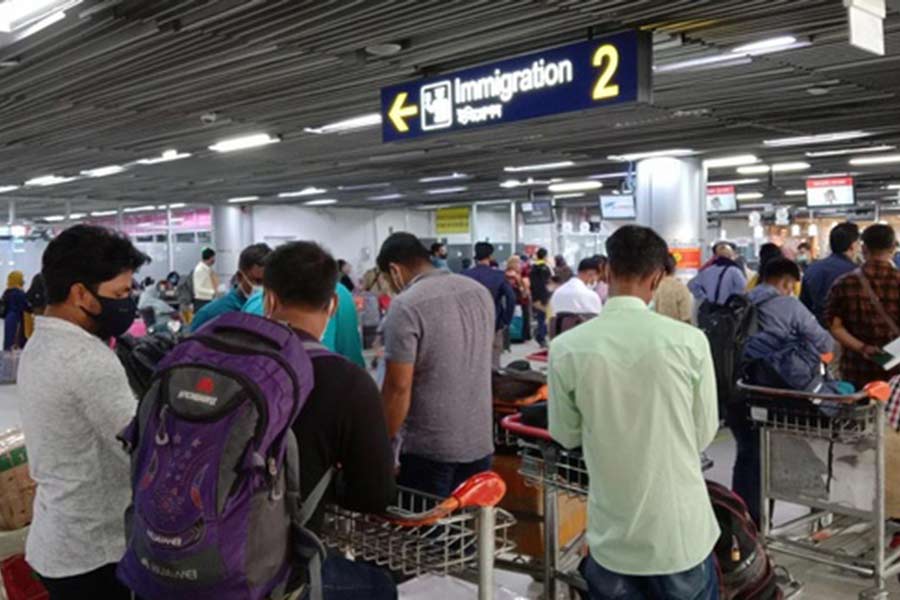
Published :
Updated :

The South Asian countries have been urged to establish collective bargaining mechanisms for ensuring the rights of their migrant workers in the key job destination countries, especially in the Gulf.
The migrant workers are vulnerable in the workplaces, as many times they are deprived of due wages, good working environment, and sometimes they are cheated and exploited in the migration process, speakers observed at a meeting in Dhaka on Saturday.
They said most of the gulf countries are yet to sign or ratify any international protocol or treaty in this regard. So there is no scope to force them to protect the basic rights of the workers.
In collaboration with partners including Climate Parliament, Bangladesh, The Earth Society, and the Observer Research Foundation (ORF), ActionAid Bangladesh jointly organised the event in Dhaka on Saturday.
Local and international representatives from civil society, legal experts, and parliamentarians took part in the session titled "Migrant Workers Rights in South Asia in the context of UN Legally Binding Instrument (LBI) on Transnational Corporations and Business Enterprises with Respect to Human Rights", held on the second day of a three-day Regional Climate Summit 2023 here.
However, the draft LBI is now being prepared. Barrister Jyotirmoy Barua, a Supreme Court lawyer, briefed about the LBI at the event.
The speakers urged the governments of the labour-sending countries to raise their voices collectively for ensuring the rights of the workers in the job destination.
At the same time, the countries of origin will also have to ratify the United Nations conventions and enact laws in light of the instruments to ensure enforcement.
Bangladeshi migrant workers largely contributed to the infrastructural developments in the job destination countries, but their rights are not protected by the laws of the receiving countries, he said in a power-point presentation.
"It is expected that this UN instrument will create a new avenue that will be truly useful in the protection of the human rights of migrant workers," Mr Barua said.
Farah Kabir, country director of ActionAid Bangladesh, moderated the programme, while Saber Hossain Chowdhury, special envoy to the Prime Minister for climate change and chair of the Parliamentary Standing Committee on MoEFCC as the chief guest, Tanvir Shakil Joy, chairperson of the Climate Parliament Bangladesh, Barrister Shameem Haider Patwary, chairperson of Bangladesh Parliamentarians' Caucus on Migration and Development, Sobita Gautam, member of Climate Parliament Nepal, and member of Parliament from India, Bhutan, and Sri Lanka were also present at the meeting.
arafataradhaka@gmail.com


 For all latest news, follow The Financial Express Google News channel.
For all latest news, follow The Financial Express Google News channel.